mfadh
|
Ach, ich stelle mir vor, wie Herr Broder, das Rechtsaußen-Bein schnaufend zurückziehend, sich die kuschlige Dauendecke ans Kinn drückend, im Bett ist es eben doch am schönsten, zum internationalen literaturfestival berlin schafft er es ja leider eher selten, Vorurteile müssen schließlich nicht bestätigt werden und auf den pseudo-intellektuellen Putz zu hauen, seinen eigenen, wohlgemerkt, macht schließlich genug Diskursfreude, ich stelle mir also vor, wie Herr Broder, gerade hat er seinen "Auf, auf zum Kampf gegen den Populismus!"-Post in den schwarzen Achgut.com-Kanal gegossen, wie Herr Broder also seine beiden rechten Beine übereinandergeschlagen hat, das linke ist ihm irgendwann scheinbar abhandengekommen, und sich, voller Freude, das Deutsche-Welle-Interview, das Tim Sebastian vor einiger Zeit auf Englisch mit Frauke Petry geführt hat, ansieht. Ist sie nicht niedlich, die Petry?, denkt Herr Broder und blättert dabei durchs AfD-Parteiprogramm. Ihre Meinungen populistisch zu nennen, die Petry-Fischerin in eine Reihe mit anderen Populisten zu stellen? Wer käme nur darauf?, fragt sich Herr Broder. Herr Broder nicht. Wehret-den-Anfängen! findet er nur gut, wenn er es selbst sagt. Aber Herr Broder will ja auch nur hören, was ihm genehm ist, und wenn Herr Broder einen Text liest, wie den Aufruf des internationalen literaturfestivals gegen Populismus, liest er eben allein das, was ihm gefällt. Die anderen Zeilen vergisst Herr Broder schnell. Aus dem Zusammenhang gerissene Zitate, da kennt sich ja übrigens auch Herr Gauland von der AfD mit aus, sichern Aufmerksamkeit. Habe ich eigentlich eben Herrn Gauland und Herrn Broder in einem Atemzug genannt? Hoffentlich.
mfadh
0 Comments
Ausstellung zum Aufruf „Demokratie verteidigen im digitalen Zeitalter“
Das Institut für Germanistik zeigt ab dem 9. Juli eine Ausstellung, die sich mit dem Aufruf „Die Demokratie verteidigen im digitalen Zeitalter“ auseinandersetzt. Diesen Aufruf hatte u.a. der diesjährige Grimm-Gastprofessor Ilija Trojanow angestoßen. Vor dem Hintergrund der NSA-Überwachungsaffäre arbeiteten Juli Zeh, Ilija Trojanow, Eva Menasse, Janne Teller, Priya Basil, Isabel Fargo Cole und Josef Haslinger einen Aufruf für digitale Menschenrechte aus, den „Writers Against Mass Surveillance“. Dem Aufruf schlossen sich 562 Unterstützer an. Diese Gruppe setzt sich aus Autoren und Künstlern unterschiedlicher Nationen, verschiedener literarischer Genres und Altersgruppen zusammen. Anlässlich der diesjährigen Grimm-Professur, welche Mitinitiator Ilija Trojanow innehat, entstand im Rahmen des Seminars „Grimm-Professur 2014: Trojanow“ von Prof. Dr. Peter Seibert eine Ausstellung zu jenem Aufruf „Die Demokratie verteidigen im digitalen Zeitalter“. Sie ist ab dem 9. Juli im Foyer des Gebäudes Kurt-Wolters-Straße 5 zu sehen. Under the title "A Stand for Democracy in the Digital Age" a thousand notable authors from all over the world published an international appeal at the end of last year. The authors, from more than 80 countries, complained that essential fundamental rights like the presumption of innocence and the right for privacy in the digital world are being abrogated, and they demanded an end to data abuse and mass surveillance.
On 15 April, the authors Juli Zeh, Eva Menasse and Priya Basil handed over this petition to the President of the European Parliament Martin Schulz. Geht Auch Anders: filmmaker Jakob Preuss speaks with the initiators of the petition against surveillance: Juli Zeh, Janne Teller, Priya Basil and Isabel Cole.
On June 5, 2013, the Guardian broke the first story in what would become a flood of revelations regarding the extent and nature of the NSA’s surveillance programs. Facing an uproar over the threat such programs posed to privacy, the Obama administration scrambled to defend them as legal and essential to U.S. national security and counterterrorism. Two weeks after the first leaks by former NSA contractor Edward Snowden were published, President Obama defended the NSA surveillance programs during a visit to Berlin, saying: “We know of at least 50 threats that have been averted because of this information not just in the United States, but, in some cases, threats here in Germany. So lives have been saved.” Gen. Keith Alexander, the director of the NSA, testified before Congress that: “the information gathered from these programs provided the U.S. government with critical leads to help prevent over 50 potential terrorist events in more than 20 countries around the world.” Rep. Mike Rogers (R-Mich.), chairman of the House Permanent Select Committee on Intelligence, said on the House floor in July that “54 times [the NSA programs] stopped and thwarted terrorist attacks both here and in Europe – saving real lives.” However, our review of the government’s claims about the role that NSA “bulk” surveillance of phone and email communications records has had in keeping the United States safe from terrorism shows that these claims are overblown and even misleading. An in-depth analysis of 225 individuals recruited by al-Qaeda or a like-minded group or inspired by al-Qaeda’s ideology, and charged in the United States with an act of terrorism since 9/11, demonstrates that traditional investigative methods, such as the use of informants, tips from local communities, and targeted intelligence operations, provided the initial impetus for investigations in the majority of cases, while the contribution of NSA’s bulk surveillance programs to these cases was minimal. Indeed, the controversial bulk collection of American telephone metadata, which includes the telephone numbers that originate and receive calls, as well as the time and date of those calls but not their content, under Section 215 of the USA PATRIOT Act, appears to have played an identifiable role in initiating, at most, 1.8 percent of these cases. NSA programs involving the surveillance of non-U.S. persons outside of the United States under Section 702 of the FISA Amendments Act played a role in 4.4 percent of the terrorism cases we examined, and NSA surveillance under an unidentified authority played a role in 1.3 percent of the cases we examined. Regular FISA warrants not issued in connection with Section 215 or Section 702, which are the traditional means for investigating foreign persons, were used in at least 48 (21 percent) of the cases we looked at, although it’s unclear whether these warrants played an initiating role or were used at a later point in the investigation. (Click on the link to go to a database of all 225 individuals, complete with additional details about them and the government’s investigations of these cases: http://natsec.newamerica.net/nsa/analysis). Surveillance of American phone metadata has had no discernible impact on preventing acts of terrorism and only the most marginal of impacts on preventing terrorist-related activity, such as fundraising for a terrorist group. Furthermore, our examination of the role of the database of U.S. citizens’ telephone metadata in the single plot the government uses to justify the importance of the program – that of Basaaly Moalin, a San Diego cabdriver who in 2007 and 2008 provided $8,500 to al-Shabaab, al-Qaeda’s affiliate in Somalia – calls into question the necessity of the Section 215 bulk collection program. According to the government, the database of American phone metadata allows intelligence authorities to quickly circumvent the traditional burden of proof associated with criminal warrants, thus allowing them to “connect the dots” faster and prevent future 9/11-scale attacks. Yet in the Moalin case, after using the NSA’s phone database to link a number in Somalia to Moalin, the FBI waited two months to begin an investigation and wiretap his phone. Although it’s unclear why there was a delay between the NSA tip and the FBI wiretapping, court documents show there was a two-month period in which the FBI was not monitoring Moalin’s calls, despite official statements that the bureau had Moalin’s phone number and had identified him. , This undercuts the government’s theory that the database of Americans’ telephone metadata is necessary to expedite the investigative process, since it clearly didn’t expedite the process in the single case the government uses to extol its virtues. Additionally, a careful review of three of the key terrorism cases the government has cited to defend NSA bulk surveillance programs reveals that government officials have exaggerated the role of the NSA in the cases against David Coleman Headley and Najibullah Zazi, and the significance of the threat posed by a notional plot to bomb the New York Stock Exchange. In 28 percent of the cases we reviewed, court records and public reporting do not identify which specific methods initiated the investigation. These cases, involving 62 individuals, may have been initiated by an undercover informant, an undercover officer, a family member tip, other traditional law enforcement methods, CIA- or FBI-generated intelligence, NSA surveillance of some kind, or any number of other methods. In 23 of these 62 cases (37 percent), an informant was used. However, we were unable to determine whether the informant initiated the investigation or was used after the investigation was initiated as a result of the use of some other investigative means. Some of these cases may also be too recent to have developed a public record large enough to identify which investigative tools were used. We have also identified three additional plots that the government has not publicly claimed as NSA successes, but in which court records and public reporting suggest the NSA had a role. However, it is not clear whether any of those three cases involved bulk surveillance programs. Finally, the overall problem for U.S. counterterrorism officials is not that they need vaster amounts of information from the bulk surveillance programs, but that they don’t sufficiently understand or widely share the information they already possess that was derived from conventional law enforcement and intelligence techniques. This was true for two of the 9/11 hijackers who were known to be in the United States before the attacks on New York and Washington, as well as with the case of Chicago resident David Coleman Headley, who helped plan the 2008 terrorist attacks in Mumbai, and it is the unfortunate pattern we have also seen in several other significant terrorism cases. Click here to read the full report.
by Madeleine Thien
Special to The Globe and Mail Published Tuesday, Dec. 10 2013, 7:18 AM EST Imagine that I took all the e-mails and messages that I have ever written, as well as recordings of all Skype calls that I have ever made, and gave them to a group of strangers. Since the strangers assemble this information digitally, their work is invisible to me. I don’t, for instance, see a man in an overcoat sitting beside me in my bedroom or at my kitchen table, photocopying everything I type, recording my phone calls, and leaving each day with all my papers in his briefcase. If I did, I would surely be incensed, for he would be gaining entry not only into my intimate life, but into the private life of every person with whom I correspond. These include researchers, writers, journalists, and editors in other countries, including Burma, Cambodia, China, Malaysia, Kenya, Zimbabwe and, of course, Canada. My life is a tiny window connected to a larger world. These strangers, the NSA says, are not reading my papers – only collecting them. According to their own arguments, in the best case scenario, they will read my life only when and if they perceive me, or anyone with whom I’m in contact, as a threat to security. However, the worst case scenario is also easy to picture. A recent, acclaimed documentary, The Act of Killing, portrayed the Indonesian government’s massacre of alleged Communists in 1965. Within a single year, an estimated 500,000 to one million Indonesians were killed, often sadistically, by militias and assassination squads. The word “communist” was applied to anyone deemed a personal or political threat, including Indonesians of Chinese ethnicity. More than a million were imprisoned, some for decades. Disturbingly, former American Embassy staff have said that they compiled lists of targets and furnished as many as 5,000 names to the Indonesian government. Referring to financial and equipment aid, Marshall Green, the U.S. Ambassador to Indonesia at the time, wrote in a cable to the CIA: “The chances of detection or subsequent revelation of our support in this instance are as minimal as any black bag operation can be.” For five years, I researched and wrote about the Cambodian civil war and genocide. Pol Pot and the Khmer Rouge were obsessed with the network of relations between people: who a person knew, in the past, even decades before the Khmer Rouge came to power, was the sole indication of that person’s present guilt. If anyone (man, woman or child) was named by three different people who had, themselves, been named, that person was automatically killed. Pol Pot believed that the enemy had infiltrated the country, and could be traced by revealing the societal and familial ties – the correspondences and friendships – between individuals. An estimated 1.7 million Cambodians lost their lives. Cambodians and Indonesians may seem very far away but, for me, they are not. Indeed, the histories I mention are part of my generation. The foreign other is not as distant as we sometimes wish to believe, and the past is not all that different from the present: as a novelist, I’ve committed my life to this truth. The ever-expanding past is a continuous mirror to the here and now. The stranger in my room, reading my private messages, carries an implicit and far-reaching threat. Today, I am not saying anything untoward (at least, I don’t think I am) but perhaps, tomorrow, or someday in the future, I will be at odds with my government, the American government, or an ally of these two. Perhaps someone with whom I correspond will be in this position. Indeed, this is not merely a likelihood, but a certainty. We entrust our governments with specific powers, but we don’t hand them our lives. However, these strangers are already in our rooms. Should we trust the priorities these strangers will have in ten years, or twenty or fifty? Should we trust that this immense cache of data will not become a commodity, traded to other governments that exist now, or will exist in the future? Democracy, as a system, was intended to prevent the few from deciding, unilaterally, on behalf of the many. State scrutiny of our inner lives is not democracy, for such scrutiny claims our thoughts – the place in which we debate, consider, rage, reflect and be – as state property. In my own life, and in the months I’ve spent in places where Internet censorship is inescapable, I have become acutely aware that freedom of thought requires privacy. Privacy is an irreplaceable refuge that allows us to breathe, to recover and to grow. Not of all us may believe that our own e-mails, letters, telephone calls, and internet habits need privacy or protection. But to give up these rights on behalf of those who do, who courageously challenge the fear, corruption and intimidation in their own countries and in mine, is something I’m unwilling to do. Don’t Cross this Line by Priya Basil You’re invited to a conference in Denver. You’re issued a US visa. You’re checking in for the American Airlines flight to the US when the airline personnel tell you that due to “Border Crossing Security” they’re required to inform American authorities of your presence at the airport. You’re then advised that your entry to the US has been refused. You're not allowed to board the flight and are told to go back home. This was the experience of Iliya Trojanow on Monday 30th September 2013 as he tried to fly from Brazil to Miami. Mr. Trojanow, a Bulgarian German writer, has long been critical about surveillance in general and has recently been very outspoken about the NSA scandal. Many, including the PEN American Center, fear that he was excluded from the US on ideological grounds. Literature does not have to be political, but writers sometimes must be. Where and in what circumstances we do this determines the level of risk it entails, yet throughout history writers have asserted their freedom to speak even knowing a huge personal cost might be exacted. Those of us writing in countries like the UK and Germany would like to believe we can reasonably express our opinion on anything without threat to our person or livelihood. Iliya Trojanow’s experience shows this is not the case. It is shocking that a political expression of outrage made in democratic Western Europe can result in barred entry to America, the country whose national anthem proclaims it as “the land of the free and the home of the brave.” The exclusion of Mr. Trojanow suggests the opposite for it is a repressive and cowardly act. Every country has a right to police its borders, none should have the right to stop someone crossing them just because he or she disagrees with those in power. There are times when writers have to step beyond their work and make clear what it is they stand for. Since the revelations from Edward Snowden we have entered one of these times. Writers in Germany understood this quickly. In a matter of weeks, an open letter to Chancellor Merkel from the novelist Juli Zeh was signed by German authors, including Mr. Trojanow, and registered as a public petition on change.org. On Wednesday 18th September, I joined in as Zeh and twenty other writers marched on the Chancellery to hand over more than 67,000 signatures collected for the petition, and to demand a more satisfactory response from Merkel. No doubt Germany’s experience with the Gestapo and the Stasi has made citizens especially wary of the implications of surveillance. Nevertheless, the concern comes not just because of the historical precedent, but from an acute fear of what indiscriminate mass spying on every facet of civilian life means right here, right now. Sometimes the present is its own best messenger. The messages are unambiguous: we are being spied on and if we protest against this we may be stopped without good cause during the innocuous, ordinary course of our lives. When innocent people are treated this way, there’s only one reason for it – to scare them. When writers are singled out it’s an attempt to silence them. This appears to be the aim of the UK and US authorities respectively with the detention of David Miranda and the debarment of Iliya Trojanow. It is an aim that I sincerely hope will fail. Yet I know and understand the human tendency to caution where one’s own interests may be adversely affected. Many people, including writers, rely on being able to travel back and forth easily between the US and the rest of the world. Therefore, after the Trojanow case, many more people may think twice about signing petitions or vocalizing their concerns about the NSA. The thing to remember is, you may need America, but America also needs you. Our world now is dependent on exchange between countries, whether of people, resources, culture or ideas. The US cannot exclude everyone who disagrees with its policies. That’s why more of us have to protest. We must act as ‘Border Control Security’ for our own privacy and freedoms. Writers, important harbours of free expression, should be ready to lead the way. America needs to see that there are lines even it cannot cross. PEN Letter Protesting Exclusion of Ilija Trojanov from the U.S.: In an open letter to Angela Merkel about the NSA scandal, published in July 2013, the novelist Juli Zeh described the blanket surveillance of citizens as "a historic attack … on the innocent until proven guilty principle". The open letter is registered as a petition on change.org and has been signed by more than 67,000 people. On 18 September Juli Zeh and two dozen other writers marched on the Chancellery to deliver the signatures to Merkel and demand a more fitting response to spying revelations. Suddenly, the waves of sympathy being expressed by the crowd at the internationales literaturfestival berlin’s Worldwide Reading for Liu Xiaobo swelled into indignation as Herta Müller, Nobel laureate and guest speaker at the event, revealed the contents of an email she’d been forwarded earlier that day from the dissident Chinese poet Bei Ling. In the message, addressed to The British Council, Bei Ling criticizes the fact that only Chinese state-approved writers and organizations are represented at the London Book Fair 2012, where China is the focus. Bei Ling expressed regret and amazement that no exiled or dissident writer from China has been invited to the Fair. Müller said that this kowtowing to China was bad enough when it happened at the Frankfurt Book Fair 2009, but it was even worse in London 2012. The audience certainly agreed and many favoured organizing some kind of public protest against the book fair. Perhaps Müller’s revelation was especially shocking because we all thought we were gathered to reflect on the repression going on elsewhere – and we were instead confronted with the fact that censorship in China means censorship for us in the West too. This point was reinforced by Tienchi Martin, president of the Independent Chinese PEN Centre and another one of the guest speakers. She reminded the audience that when a huge power like China mistreats its citizens it is not just a Chinese issue – freedoms across the world are threatened. Economic interests have tethered our lives to China in ways that we’re not even fully aware of. Martin asked the audience if they could imagine going for five days without many of the Chinese-made products that no doubt fill their homes and offices. The extent of China’s influence on us is more far reaching than we’d like to consider, and therefore the eventual effects of China’s internal policies on us, too, may be greater than we can imagine. As Ulrich Schreiber, director of the literaturfestival, and initiator of the worldwide readings, reminded us at the start of the evening on 20th March 2012, Liu Xiaobo has been incarcerated for 1198 days. He will remain in prison for a further 3018 days unless the Chinese authorities relent. The government shows no signs of revoking Xiaobo’s sentence. Indeed, many other writers and dissidents continue to be detained across China. Mostly it feels like there’s not much we can do about such injustices, but on occasions like the Worldwide Reading, belief in the power of human solidarity is refreshed, and the will to act is galvanized. Through a thoughtfully choreographed evening of documentary film, readings, music and discussion at the Martin Gropius Bau in Berlin, the literaturfestival created a forum in which all those gathered could reflect on Liu Xiaobo’s life and achievements, the role of China in the world today, and the significance of one man’s fate for the rest of us. “Maybe for the West the Charta 08 is a very basic thing, just common sense, but for the people of China it is hugely important. They have been fighting for it for years. I think it’s amazing for us to have such a document.” This was the response of Liao Yiwu, a longtime friend of Xiaobo’s, and now a writer in exile himself, after the public reading of Charta 08. Herta Müller remarked that the document, in its “exactness and humanity”, shows “how necessary Liu Xiaobo is for China. It’s a catastrophe that the regime puts such a person in prison.” She also highlighted the personal dimension of this tragedy, speaking with feeling about Xiaobo’s “stolen life”, and how his wife, Liu Xia, too, has been cut off from the world. Certainly, Xiaobo’s poems, remind us of the private love story within the very public, politically charged narrative of Xiaobo’s life. He writes of “the nights of love stored away”, and one can’t help thinking perhaps it would now be more apt to say ‘snatched away’. In Longing to Escape, written for his wife, Xiaobo says: “I would toss aside the pretense of martyrdom To lie humbly at your feet. This, saving death, is my one true duty. Then my heart would be as a mirror. Reflecting everlasting happiness.” One audience member asked if Xiaobo knew anything of the worldwide reading, or other initiatives to help him. Tienchi Martin assured the audience that Liu Xiaobo, for all the restrictions on him, “knows he is not alone”. News does trickle in to him through the limited family visits he allowed from his wife and brother. Xiaobo must know the words of Confucius: “Virtue is not left to stand alone. He who practices it will have neighbors.” The worldwide readings embody this idea, and on 20th March many stood together to honour Liu Xiaobo. We will continue to take this stand until Xiaobo is released. Priya Basil |
Archives
June 2016
Categories
All
|
||||||
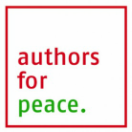
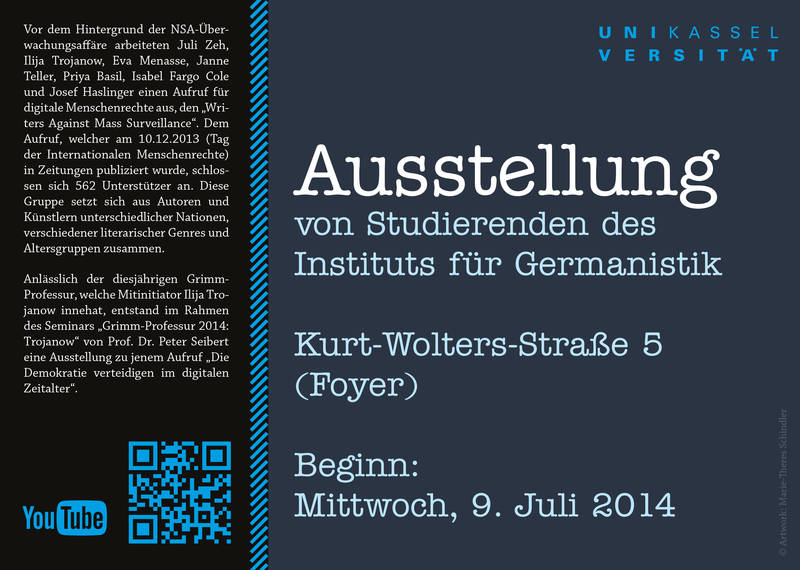

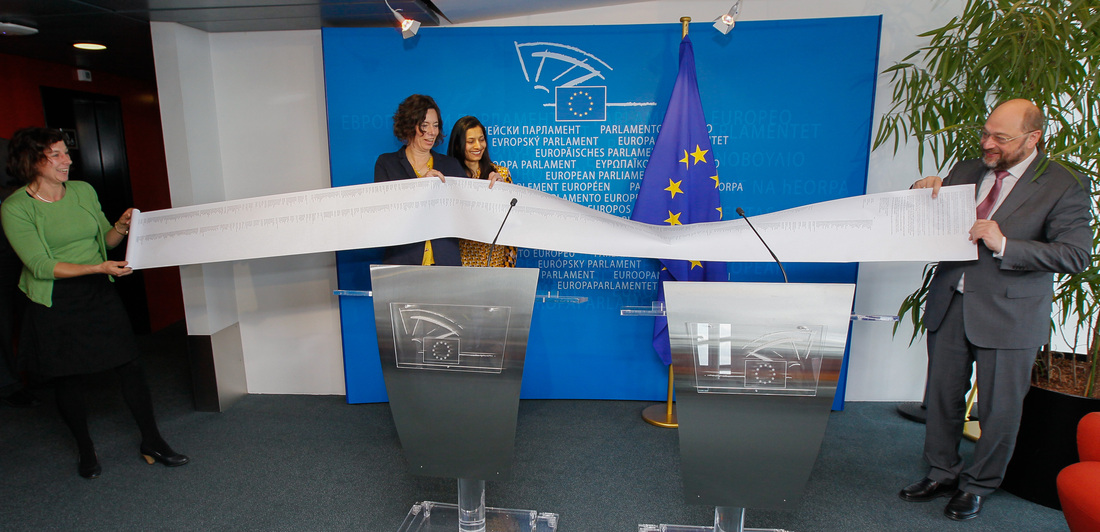



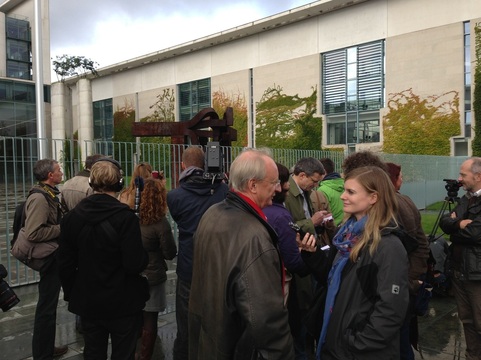
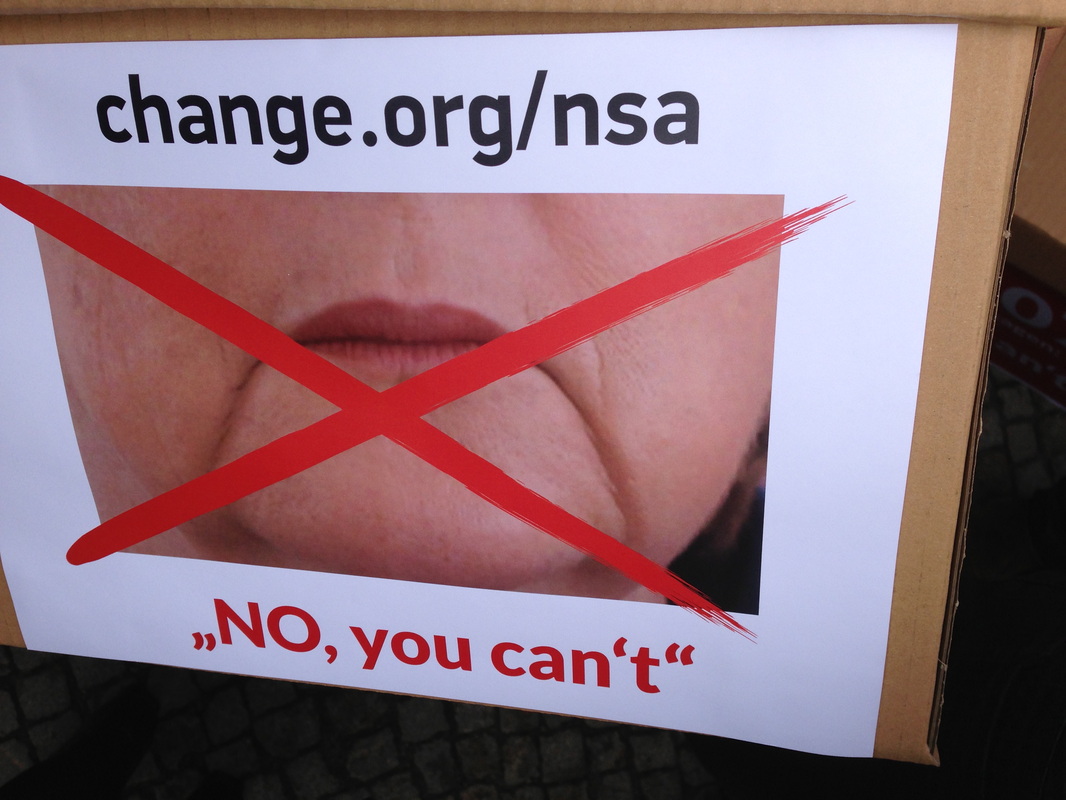
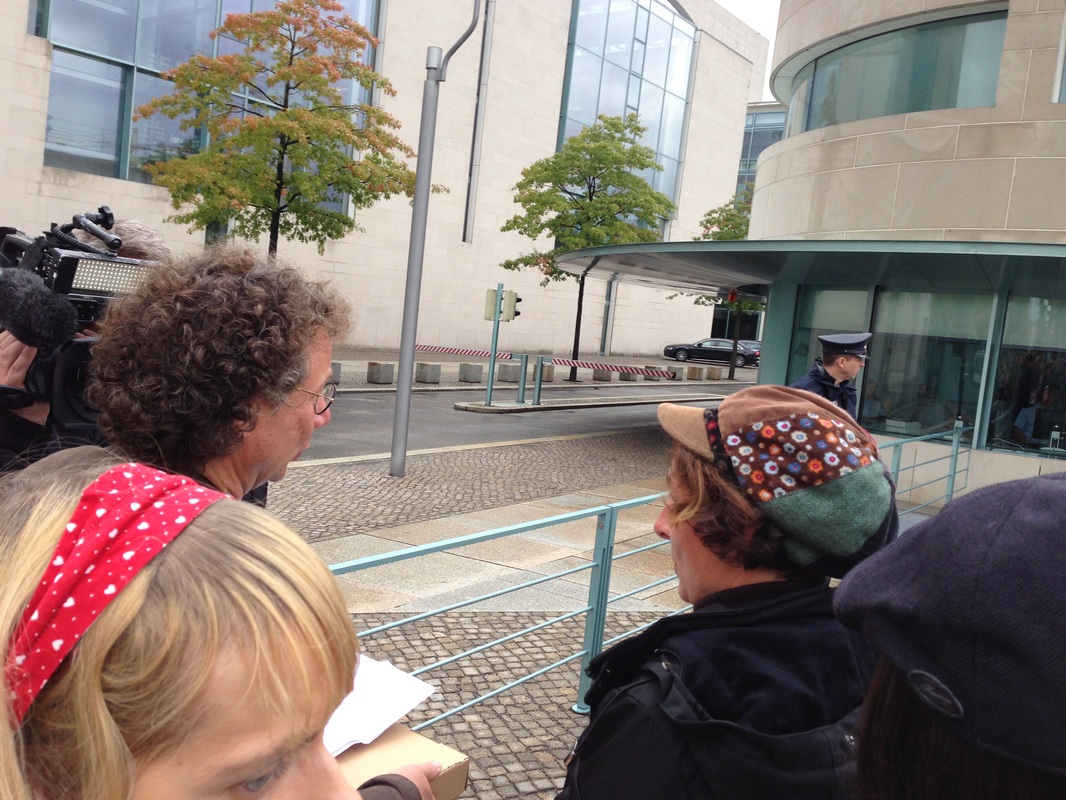
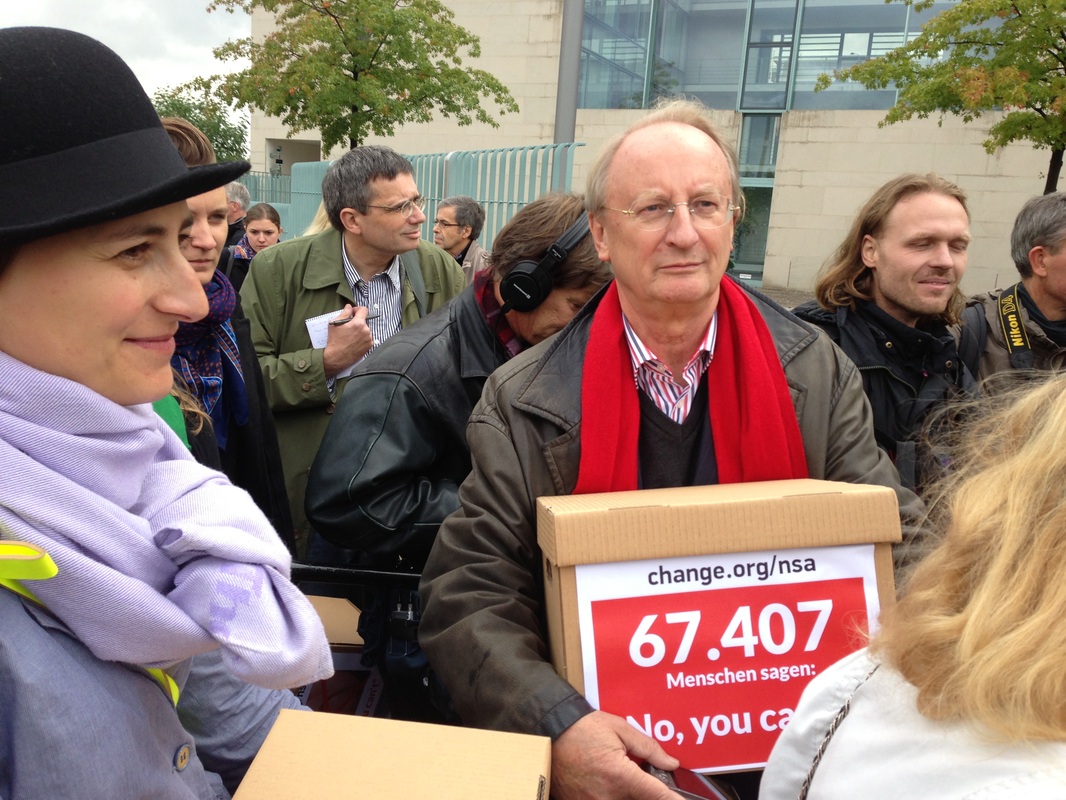
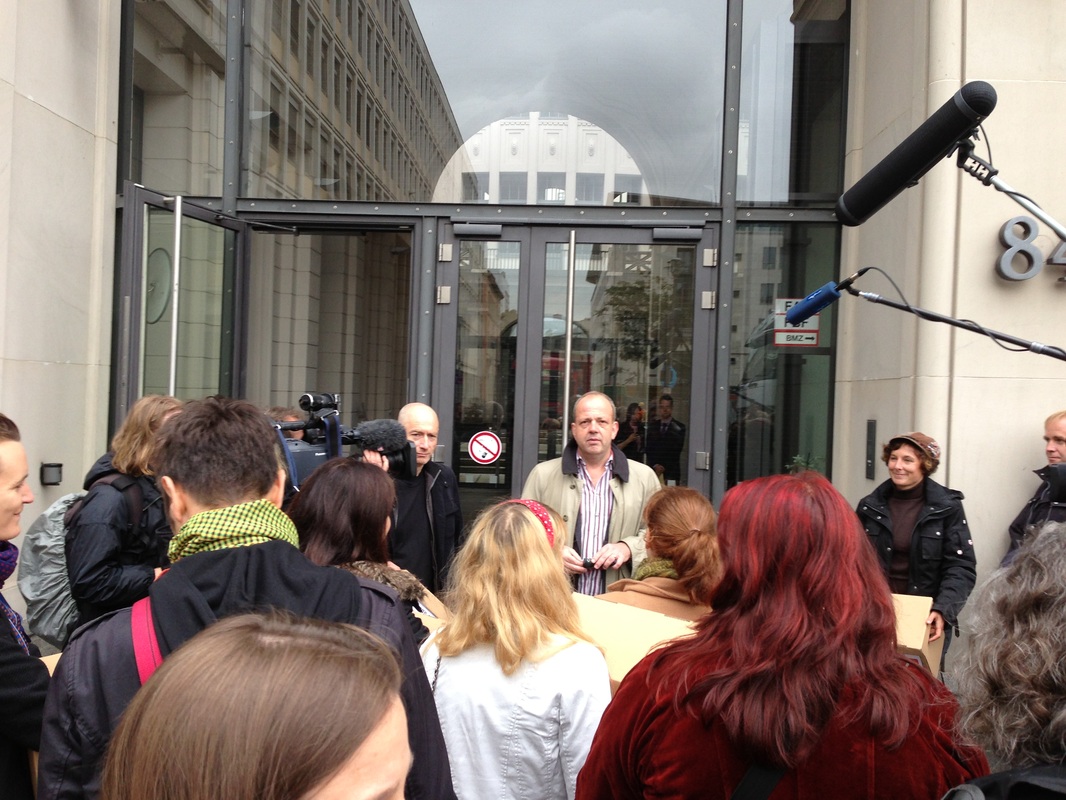
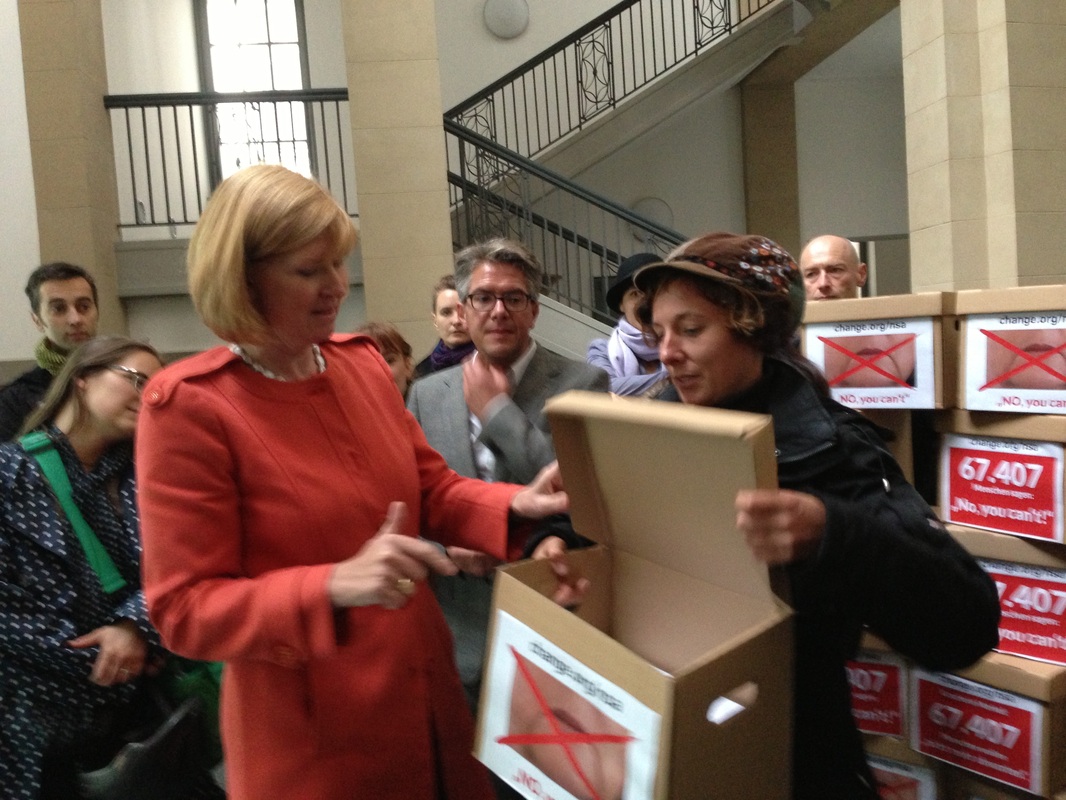
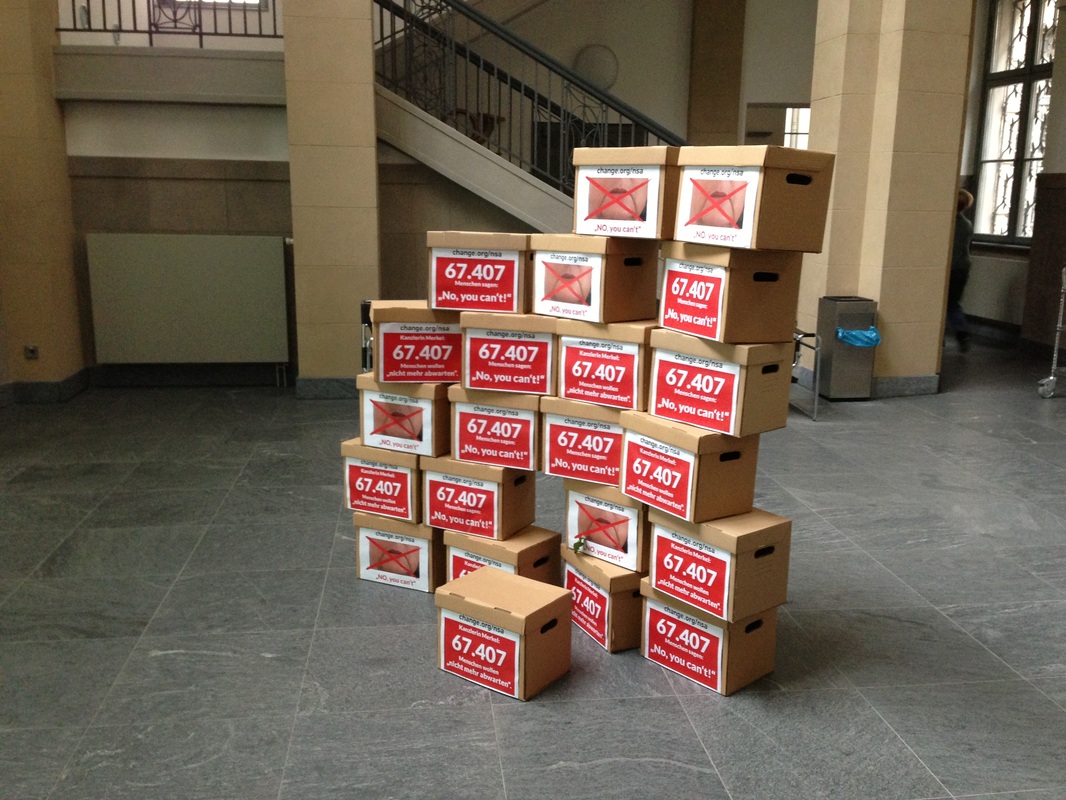
 RSS Feed
RSS Feed
